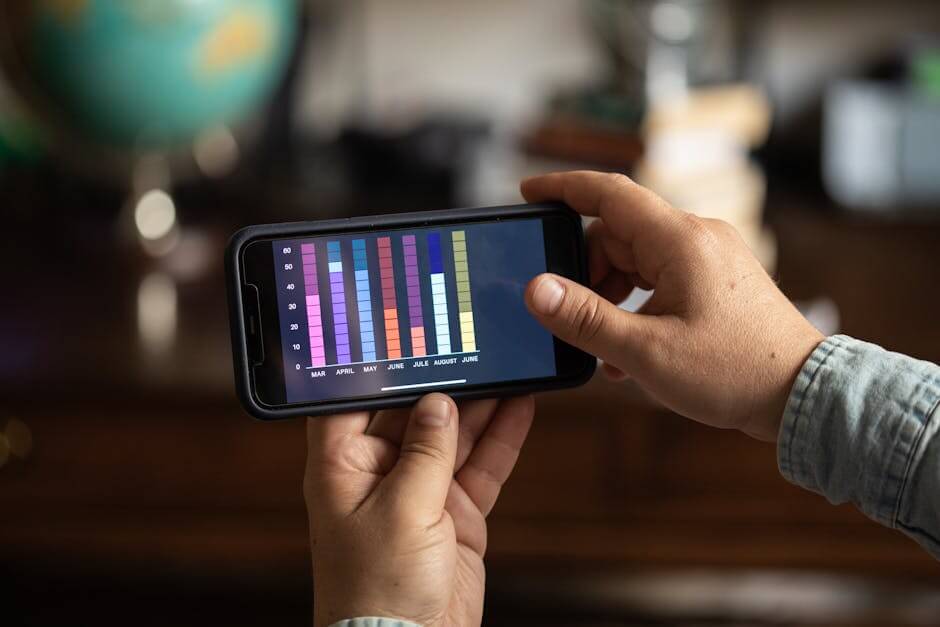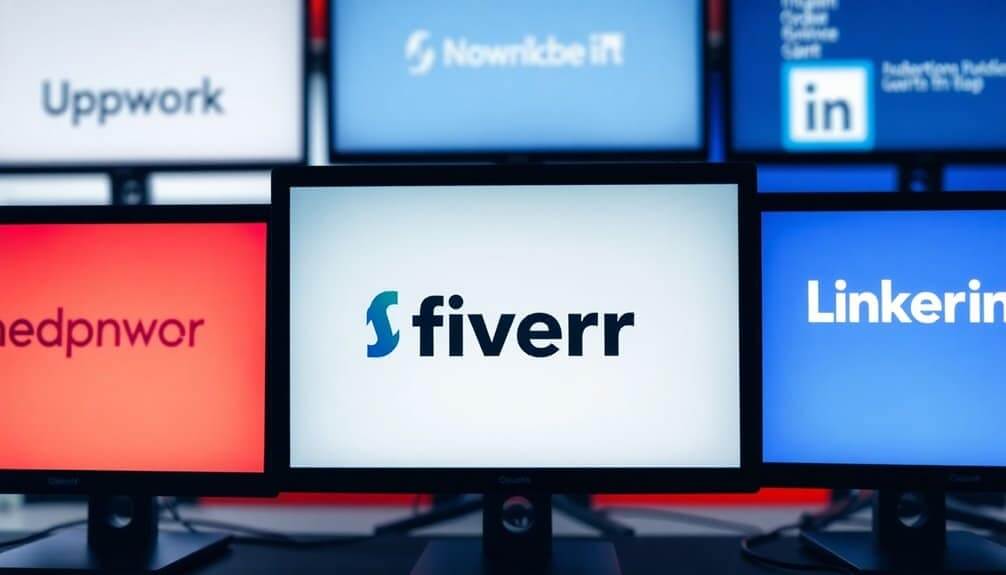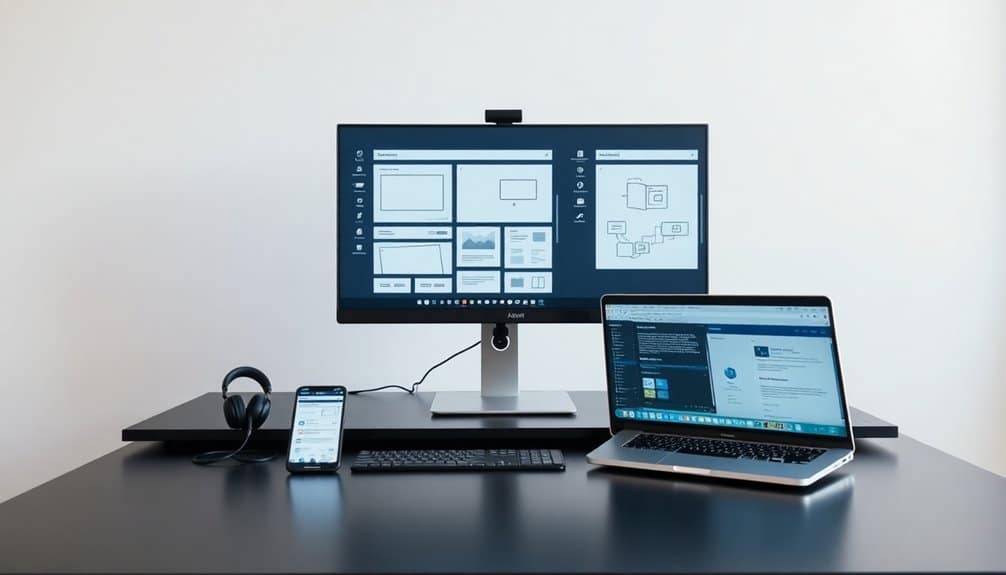App making cost is a crucial topic for businesses aiming to enter the mobile app market. If you’re wondering about the cost of developing an app, a few factors play a significant role in determining the overall expenses:
- Complexity Levels: Simple apps cost less; more complex ones will increase costs.
- Platform Choices: Choose between iOS, Android, hybrid, or web apps.
- Feature Integration: More features like third-party APIs and security increase costs.
- Region: Development costs vary significantly by region (e.g., India vs. United States).
Diving into app development involves understanding these cost factors which can influence the success of your project.
As a seasoned digital marketing specialist, I have spent years collaborating with development teams, honing my understanding of app making cost and strategies that optimize app development processes. Stay tuned as we explore detailed aspects of app development costs in the following sections.

App making cost helpful reading:
– app development for startups
– making an ios app
– mobile app development
App Making Cost: Key Influencers
When it comes to app development, the app making cost can vary widely based on several key factors. Let’s break down these influencers:
Complexity Levels
The complexity of your app is one of the biggest drivers of cost.
- Simple Apps: These usually include basic features such as a user login and simple interface. Expect them to take 2-3 months to develop, costing between $5,000-$50,000.
- Medium Complexity Apps: These boast more features, like messaging or a basic admin panel. They typically take 3-9 months to develop, with costs ranging from $50,000-$120,000.
- Complex Apps: These are packed with advanced features like AR/VR or AI, and require 10+ months of development, costing upwards of $100,000-$300,000.
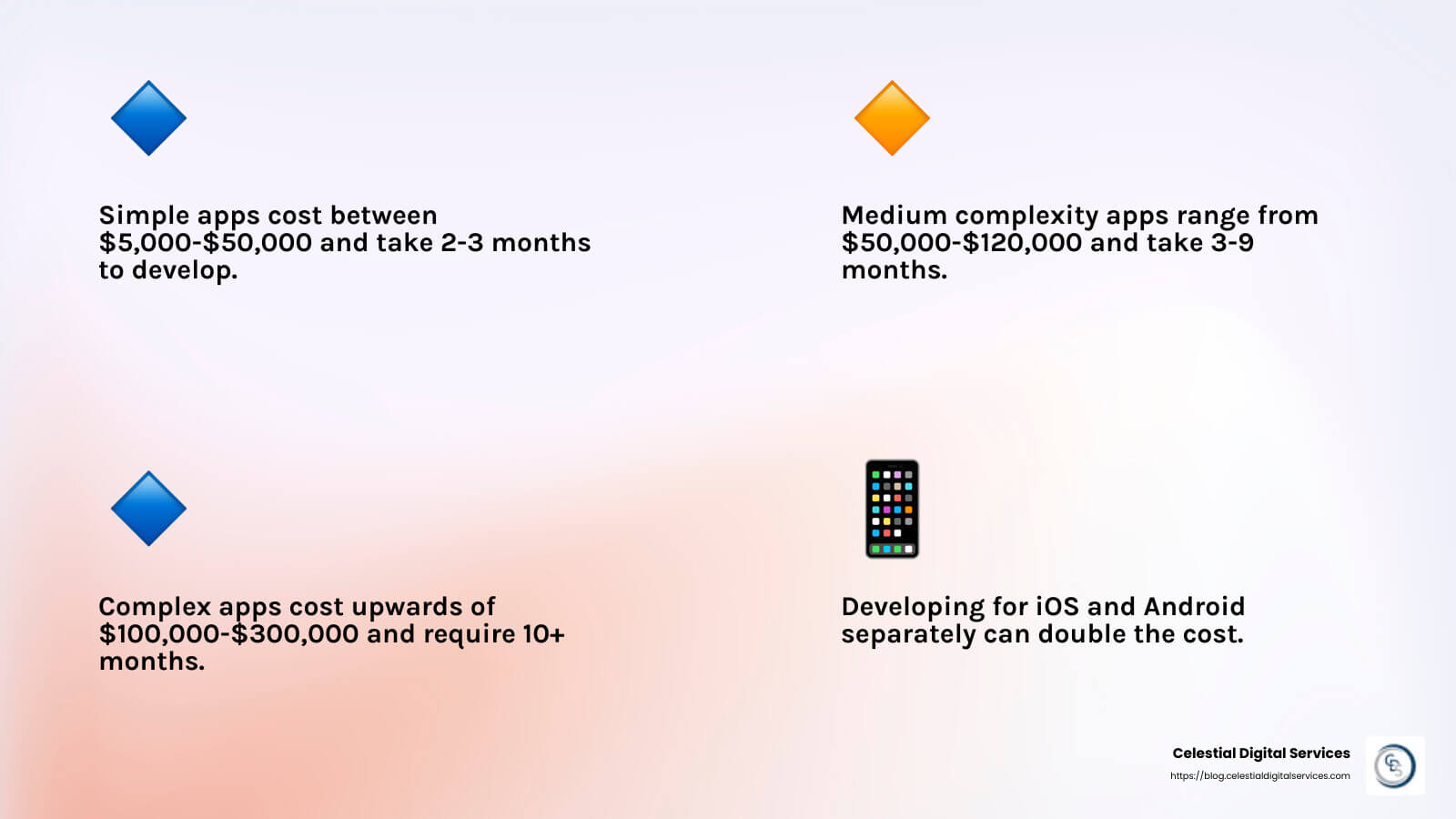
Platform Choices
Choosing the right platform is crucial and can significantly impact costs.
- iOS and Android: Developing for both platforms separately can double the cost. However, using cross-platform tools like Flutter can save money by allowing you to write one codebase for both platforms.
- Hybrid and Web Apps: These are generally more cost-effective than native apps, as they require less time to develop and maintain.
Feature Integration
Adding more features increases both complexity and cost.
- Third-Party APIs: Utilizing existing APIs can save time and money compared to building features from scratch. However, each integration can add $4,000-$6,000 to your budget.
- Security: Implementing robust security measures is essential but can be costly, especially for apps handling sensitive data.
- Backend Infrastructure: A well-designed backend is crucial for scalability and performance, but it can also be a significant cost factor.
Maintenance and Updates
Your app’s development journey doesn’t end at launch.
- Ongoing Costs: Regular updates and maintenance are necessary to keep your app running smoothly. This includes bug fixing, performance monitoring, and adapting to new OS versions.
- Bug Fixing: Addressing bugs promptly is crucial for user satisfaction. Plan for ongoing costs to ensure your app remains functional and secure.
Understanding these key influencers can help you steer the complexities of app development and budget effectively for a successful project.
App Development Stages and Their Costs
Creating an app is a journey through several stages, each with its own tasks and costs. Let’s explore these stages, from planning to deployment, to understand how they influence the app making cost.
Planning Stage
Before the first line of code is written, thorough planning is essential. This stage involves market research and defining the app concept.
-
Market Research: Understanding your target audience and competitors is crucial. It helps you identify opportunities and risks, shaping your app’s direction. Companies often spend between $5,000 and $10,000 on this stage, which can constitute 10% to 20% of the total budget.
-
App Concept: This involves visualizing your app’s core features and setting a product roadmap. A clear concept helps in aligning the team with the project goals and reduces the likelihood of costly changes later.
Design Stage
The design stage is where your app starts to take shape visually. It’s all about creating an engaging user experience.
-
UI/UX Design: A well-designed interface can make or break your app’s success. Simple designs might cost between $3,000 and $10,000, while more complex ones can reach up to $30,000.
-
Wireframes: These are like blueprints for your app, outlining the layout and flow. They help in visualizing the user journey and are crucial for effective communication between designers and developers.
Development Stage
The development stage is where the magic happens—turning ideas into a working app.
-
Coding: This is the most resource-intensive part, often consuming 40% to 50% of the budget. Costs can range from $30,000 to $300,000 depending on complexity.
-
Backend Infrastructure: A robust backend is essential for app functionality and scalability. Building this infrastructure can be a significant cost factor, especially for apps with complex features.
Testing Stage
Testing ensures your app is ready for the real world, free from bugs and glitches.
-
QA and Bug Fixing: Quality Assurance (QA) is crucial to ensure your app functions smoothly across devices. Testing can take up 10% to 20% of the budget, with costs ranging from $5,000 to $50,000.
-
Performance Monitoring: This involves assessing the app’s speed and responsiveness, ensuring a seamless user experience.
Deployment Stage
Finally, it’s time to launch your app into the world.
-
App Store Fees: Publishing your app on platforms like Apple’s App Store or Google Play involves fees. These can range from $25 for a one-time fee on Google Play to $99 annually for Apple.
-
Launch Strategy: A successful launch requires a well-thought-out strategy. This includes marketing efforts and user acquisition plans to ensure your app reaches its audience effectively.
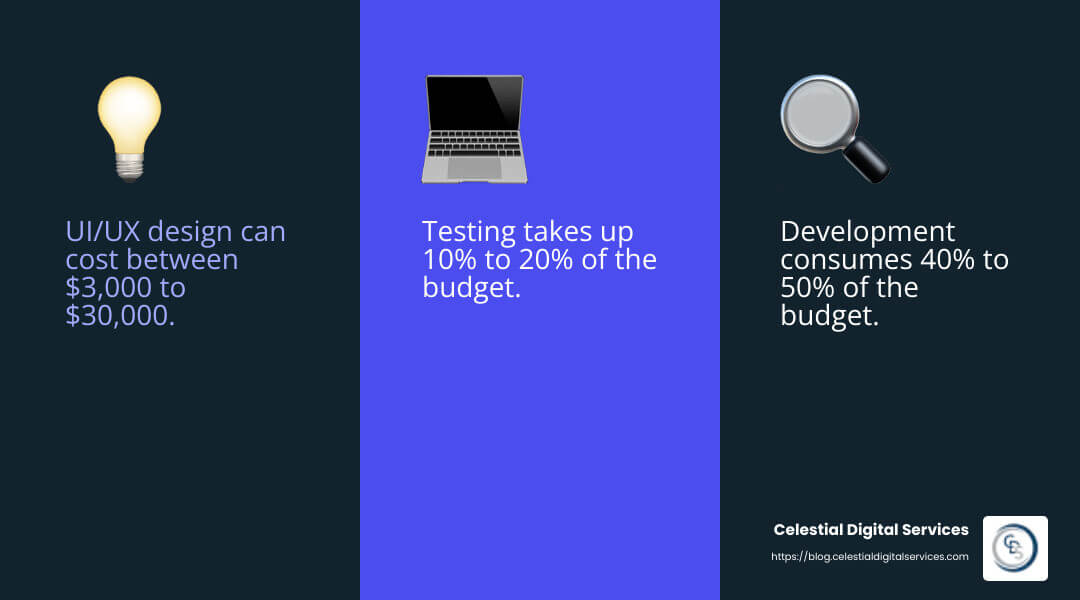
Each stage in app development is a building block towards your app’s success. By understanding these stages and their associated costs, you can budget effectively and make informed decisions throughout the development process.
Regional Cost Variations
When diving into app development, one crucial factor to consider is the regional cost variation. This can significantly impact your app making cost depending on where you choose to hire developers and the hidden costs involved.
Hiring Developers
The cost of hiring developers varies widely across different regions. In North America, hiring an in-house developer can be quite expensive, with salaries averaging around $113,125 per year. However, if you opt for freelancers, you can find rates ranging from $13 to $60 per hour on platforms like Upwork.
In Western Europe, the costs are somewhat similar, with rates slightly lower than in North America. Meanwhile, in Asia, particularly in countries like India, hiring developers is more cost-effective. Rates here can range from $20 to $40 per hour, making it an attractive option for budget-conscious projects.
- In-house vs. Freelancers: Choosing between in-house developers and freelancers depends on your project needs. In-house teams offer consistency and easier collaboration but come at a higher cost. Freelancers provide flexibility and can be more affordable, especially for smaller projects.
Hidden Costs
Beyond the obvious expenses, several hidden costs can affect your app development budget. These are often overlooked but are critical to the app’s success.
-
Backend Infrastructure: A strong backend is essential for app performance and scalability. This includes server hosting, database management, and other technical requirements. The costs can add up, especially for apps with complex functionalities.
-
Third-Party Services: Integrating third-party services like payment gateways or social media platforms can incur additional charges. These might include licensing fees or API usage costs, which vary depending on the service provider.
-
Security: Ensuring your app is secure is non-negotiable. Implementing security features like encryption and two-factor authentication is vital but can increase costs. Failing to prioritize security can lead to financial and reputational losses.

Understanding these regional cost variations and hidden expenses is key to budgeting effectively for your app development project. By weighing your options and considering these factors, you can make informed decisions that align with your budget and project goals.
Frequently Asked Questions about App Making Cost
How much will it cost to make an app?
The cost to make an app can vary significantly based on several factors. A simple app might cost between $5,000 and $50,000. Medium complexity apps can range from $50,000 to $100,000. For complex apps, you’re looking at $100,000 to $300,000 or more. Factors like app complexity, platform choice (iOS, Android, both), and feature integration play a big role in determining the final price tag.
Can I make an app for free?
While it might be tempting to think you can make an app for free, it’s not entirely realistic. There are always costs involved, even if you’re doing it yourself. You’ll need to pay for developer accounts, like the Apple Developer Program ($99/year) or Google Play Developer account ($25 one-time fee). Additionally, consider costs for tools, software, and any third-party services you might need. Even if you’re coding the app yourself, your time is a valuable resource that should be factored into the overall cost.
How much should I pay someone to make an app?
Paying someone to make an app depends on the developer’s location, expertise, and the project’s complexity. In North America, expect to pay between $50 and $150 per hour for a skilled developer. In regions like Asia, the cost might be lower, around $20 to $40 per hour. For freelancers, rates can vary from $13 to $60 per hour on platforms like Upwork. It’s crucial to balance cost with expertise to ensure you get a quality product that meets your needs.
By understanding these aspects, you can better steer the app making cost and make informed decisions about your app development project.
Conclusion
Navigating the landscape of app making cost can be challenging, but with the right partner, it becomes a manageable journey. At Celestial Digital Services, we are committed to helping startups and local businesses thrive in the competitive online world. Our mission is to simplify digital marketing and app development for those who may not be technically inclined.
We understand that creating a successful app is not just about coding—it’s about crafting a seamless digital solution that improves your online presence. Whether you’re aiming to build a simple app or a complex platform, our team is here to guide you through every step of the process. From initial planning to deployment, we ensure that your app aligns with your business goals and budget.
Our approach is rooted in understanding your unique needs and providing custom solutions that drive results. By leveraging innovative technologies and industry expertise, we empower businesses to reach new heights in the digital landscape.
If you’re ready to take the next step in your app development journey, explore our mobile app development services. Let’s work together to transform your vision into reality and boost your online presence with a robust, user-friendly app.
In the end, the key to success lies in choosing the right partner who can offer the support and expertise needed to steer the complexities of app development. At Celestial Digital Services, we’re here to be that partner for you.

